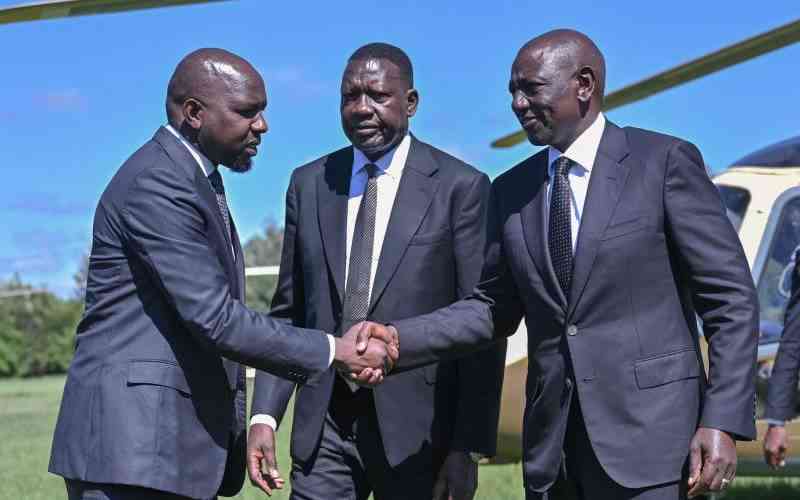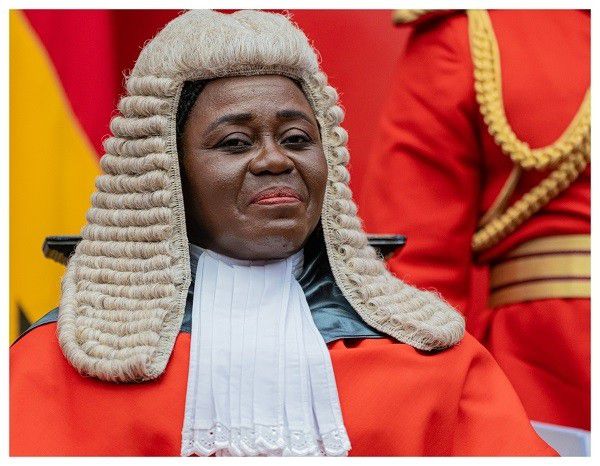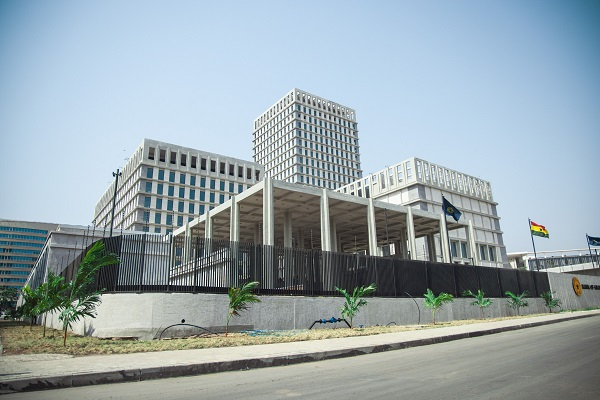Yinlayefa Adeleke: Seeking counselling, therapy isn't a sign of weakness
Yinlayefa Elizabeth Adeleke is a certified counsellor dedicated to transforming lives through guidance and support. With nearly 20 years of experience, through Recovery Waters Counselling Limited, she is fostering healthier relationships, promoting emotional wellness. Adeleke holds a Master’s Degree in Education, specialising in Guidance and Counselling from the University of Lagos, Nigeria. She earned a Bachelor’s degree in Communication Arts from the University of Uyo, Nigeria, and a Postgraduate Diploma in Counselling from the Blackford Institute, South Africa. In this interview, she speaks on her passion for impacting lives through counselling.
I came from the advertising and customer service space, and counselling has been an inspiring and purpose-driven journey. I worked as a customer care consultant with Airtel back in the days when it was called V-Mobile to when it became Airtel and I absolutely loved what I did. I’ve always been drawn to people and genuinely enjoy helping them solve problems. There’s a certain joy and fulfilment I experience when someone comes to me with a challenge, and I’m able to help them find clarity or relief it’s incredibly rewarding. Interestingly, that passion to help others found deeper expression over time. I recall a defining moment back in 2004 when the prominent Pastor (Mrs) Bimbo Odukoya of Fountain of Life Church, Lagos, passed away.
A close friend of mine, who regularly attended her relationship seminars, was heartbroken and said, “Can you imagine? Pastor Bimbo is gone.” I looked at her in the eye and said, “No, Pastor Bimbo is not dead, I will not let her die.” I didn’t fully understand why I said that then; it was spontaneous. But in hindsight, it was a prophetic moment that revealed what was to come.
Eventually, I began volunteering for counselling roles in church, and it became evident that there was a natural grace in me for helping people navigate relationships and emotional issues. My husband saw it too and encouraged me to pursue formal trainings in counselling so I could serve more effectively and professionally. That marked the beginning of my fulfilling journey into the world of relationship coaching and professional counselling.
My counselling methods and areas of specialisation have been largely shaped by my life experiences, the people I’ve encountered, and a deep desire to bring healing and clarity to broken and burdened lives. My journey started in marriage and relationship counselling, partly inspired by the ups and downs in my own marriage. The early years of my marriage weren’t exactly smooth sailing. My husband and I had to unlearn a lot, relearn healthier ways to communicate, and grow into our roles with mutual respect, love, and grace. Those real-life struggles and victories gave me empathy, insight, and practical wisdom to help other couples navigate similar terrain. As I worked with more couples, I realised that relationship issues are rarely isolated. Many were dealing with emotional wounds from childhood, unresolved trauma, addictions, parenting struggles, or even domestic abuse. I couldn’t close my eyes to those realities. That was when I began to broaden my scope, taking courses, seeking professional certifications, and studying evidence-based approaches like Cognitive Behavioural Therapy (CBT) to ensure I could support clients holistically. Parental counselling became a passion when I started working with teenagers and observed how much they were silently battling identity confusion, emotional neglect, peer pressure, and even substance use. Helping parents understand their children and helping children feel seen and heard became a mission I couldn’t ignore. In essence, every client I’ve met has left a mark. Combined with my own, their stories inspired me to keep evolving, to be the kind of counsellor who doesn’t just treat the surface, but who journeys with people to the root of their issues, with compassion, clarity, and practical tools for change.
What drives my passion is the undeniable truth that silence is not healing. In this part of the world, many people are suffering quietly under the weight of emotional pain, addiction, depression, and trauma because they’re afraid of being judged, misunderstood, or labelled as weak. And the more we ignore these issues, the more they silently destroy lives, homes, and futures. I’ve seen firsthand how emotional wounds unaddressed and unspoken can manifest in the form of broken marriages, rebellious children, addiction, domestic violence, and even suicide. I’ve listened to people who have worn smiles in public while silently battling anxiety, rejection, identity struggles, or trauma behind closed doors. That reality breaks my heart and it fuels my calling. My passion is to create safe, non-judgmental spaces where people can unburden, feel seen, and begin their healing journey. Everyone deserves the dignity of being heard and the opportunity to grow beyond their pain. Addiction, for example, isn’t just a moral failure as it’s often perceived, it’s often a cry for help, a coping mechanism for deep, unresolved pain. Emotional wellness isn’t a luxury, it’s foundational to living a full and functional life. So, I speak up, I counsel, I teach, and I advocate because if we don’t break the silence, the silence will keep breaking people. And if someone like me, who understands both faith and therapy, doesn’t show up to bridge the gap, who will?
One of the most common misconceptions is that counselling is only for “crazy” people or people who are completely broken. This couldn’t be further from the truth. Counselling is for anyone who wants to grow, heal, gain clarity, or have a safe, supportive space to process life. Just as we see doctors for our physical health, therapy supports our emotional and mental well-being, that’s something everyone needs at different points in life. Another misconception is that counsellors give advice or tell you what to do. In reality, a good counsellor doesn’t impose decisions, they guide, listen, ask the right questions, and help clients discover their own answers. The goal is empowerment, not dependency. There’s also the belief that therapy is a quick fix, that one or two sessions should be enough to “fix” a long-standing issue. But healing is a journey, not a sprint. It takes time, commitment, and trust.
Some people also assume that talking about problems makes things worse, but in truth, the silence often does the real damage. Talking to a trained professional in a safe and confidential space can bring immense relief and clarity. Lastly, in some cultures, going to therapy is seen as a sign of weakness, but I see it as a sign of strength. It takes courage to ask for help, face one’s pain, and commit to personal growth. Counselling isn’t about weakness; it’s about wisdom.
Over the years, I’ve sat with many couples at the crossroads of their marriage, and while the surface issues may vary, infidelity, poor communication, emotional neglect, financial disagreements, abuse, unmet expectations at the root, I believe most divorces stem from two broad but powerful causes: hardness of heart and ignorance of heart. Hardness of heart is when one or both partners become emotionally shut down, rigid, unwilling to compromise, forgive, or truly see each other’s pain. It’s a lack of empathy, a refusal to soften one’s stance, or to even try to mend what’s broken.
It shows up as pride, stubbornness, or bitterness qualities that quietly erode love over time. When the heart is hardened, people become more invested in being “right” than being reconciled. On the other hand, ignorance of the heart speaks to a lack of knowledge or skill, especially in areas like communication, emotional regulation, conflict resolution, and understanding the real dynamics of partnership. Many people walk into marriage with passion but not preparation. They may love each other deeply but simply don’t know how to do life together. They’ve never been taught how to truly listen, resolve conflict without damage, or meet each other’s emotional needs. While the triggers for divorce may look different on the surface, I’ve found that they often fall into these two categories. The good news is that both can be addressed.
With the right support, humility, and willingness to grow, many couples can find their way back to healing. That’s why I’m so passionate about premarital and marital education because many marriages can be saved through emotion, intention, skill, and heart work.
The perception of mental health in Nigeria is gradually shifting slowly, but surely. For the longest time, mental health challenges were either misunderstood, ignored, or attributed to spiritual causes. Sadly, this led to stigma, shame, and silence. Many people suffering from emotional or psychological distress were seen as “possessed” or weak, and this cultural lens created significant barriers to seeking help. However, I’m encouraged by the fact that we are beginning to see a wave of change.
Conversations around mental health are becoming more mainstream, especially among the younger generation. Social media, film, and faith-based platforms are now shedding light on issues like depression, anxiety, addiction, trauma, and emotional wellness topics that were once taboo. There’s also growing recognition among professionals, educators, and even some religious leaders that emotional and psychological well-being is not separate from spiritual or physical health, it is interconnected. We’re seeing more individuals open up about their mental health journeys, and more people now realise that seeking therapy is not a sign of weakness, but wisdom. That said, we still have a long way to go. Mental health services remain underfunded, and the country has a severe shortage of trained professionals. But the awareness is growing, and that’s the first major step toward change. As someone in the mental health field, I remain hopeful and committed to being part of the movement that destigmatises mental health and makes healing accessible, relatable, and respected.
One of my biggest challenges has been reinventing myself without losing myself. Transitioning from one field to another – advertising to customer service, and then to counselling and coaching – required courage, adaptability, and a deep sense of purpose. Each field came with its own expectations, learning curves, and demands, and I had to grow through all of that while staying true to my core values and faith. Another major challenge has been balancing multiple roles – as a wife, mother, professional, mentor, and ministry leader. Each role is demanding in its own right, and there were seasons when I felt stretched thin. I had to learn to prioritise, create healthy boundaries, and sometimes make tough sacrifices to remain focused on what truly matters.
That said, one of my greatest blessings in navigating these challenges has been my husband. I am blessed with a super supportive man who feels his primary call in life is to stand firm with me. He believes so deeply in who I am and what I carry. He gives me wings to fly high. Truly, my husband is my powerhouse, my greatest fan and supporter. His strength, encouragement, and faith in me have been instrumental in helping me keep going even in difficult seasons.
As a woman, I’ve also faced moments of doubt, feeling underestimated or questioned simply because of my gender. In some spaces, I had to work twice as hard to prove that I belonged. But those challenges only sharpened my resolve and made me more intentional about empowering other women to find their voice and walk boldly in their purpose.
My life mantra is simple: “Live purposefully, serve passionately, and honour God in all you do.”







